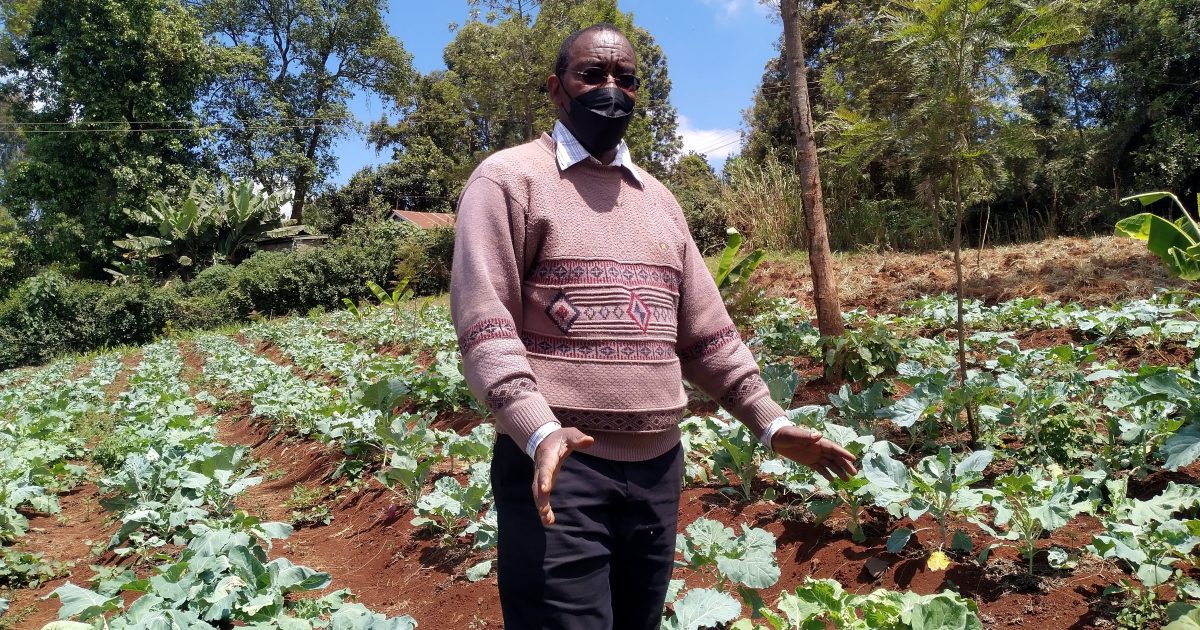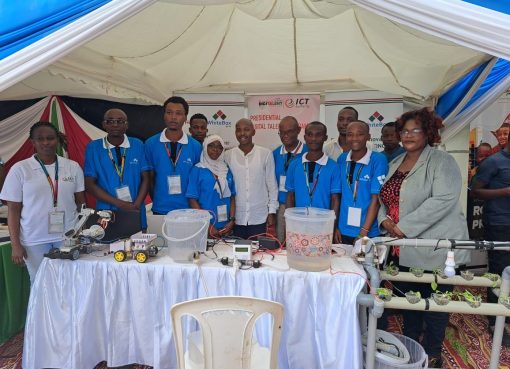As the World Food Day is marked on every 16th of October , efforts by the global community to tackle food security is further complicated by the effects of the Covid 19 pandemic that threatens to derail all the gains made over the years.
For the second year in a row, countries are still grappling with the ravages of the pandemic that has since shaped the theme of the celebrations; “Our actions are our future- Better Production, Better Nutrition, A Better Environment and a Better Life.”
Even as this day is celebrated, farmers who produce various foods are still looking at the diverse ways in which food can be consumed safely as well as produced in a sustainable way that works with nature.
According to the Participatory Ecological Land Use Management (PELUM) Association that promotes ecological land use and management practices for improved livelihoods among small scale farmers and pastoralists, agro ecology requires supportive complementary policies with all stakeholders to achieve its full potential.
“Agro ecology has the explicit goal of strengthening the sustainability of all parts of the food system, from the seed and the soil, to the table, including ecological knowledge, economic viability, and social justice”, said Executive Director Biodivison Africa Trust, Dr David Amudavi.
Speaking to journalists during a sensitization forum in Kiambu, Dr Amudavi said although Kenya is ranked among top ten producers of organic foods in Africa, only 23 percent of its land was arable.
He noted that arable land continues to shrink due to invasion by real estate developers thereby creating a huge gap in providing valuable economic and social benefits and also addressing food security.
“There is a huge gap that needs to be addressed in terms of production and land if the country is to meet the demand for organic products which currently most consumers want”, he said noting that increasing awareness of Kenyan consumers on the benefits of organic food has further led to a huge demand for organic products.
Dr Amudavi said that lack of an organic agriculture policy has seen the civil society groups working together with partners to generate evidence for policy so that the government can be able to come up with a policy not only to guide the sector but also come up with a framework on organic agriculture production and marketing of organic products.
The draft policy of organic agriculture that was developed by experts drawn from Kenya Agricultural and Livestock Research Organization (KALRO) in 2016 had been completed and waiting to be subjected to the normal process of approval but in 2019, Government ordered for fresh formulation of the national organic policy.
Retired Pharmacist Dr Peter Wainaina, has a 5-acre piece of land in Wangige area of Kiambu County, and has for the last three years been transforming his land to an organic farm in order to grow only organic foods.
Munyaka Meadows as his farm is known, has gone fully organic and Dr Wainaina says he has seen its benefits and thus joining the over 200,000 organic farmers in the country.
Dr Wainaina explained that consumers are increasingly aware of the need to know the origin of food they eat and how it is grown and especially in this time of COVID 19 where most people are demanding for natural organic foods and herbs.
“There is a target market for the organic foods especially now that more and more people are interested in health and sustainably produced food and this you can see with an increase also in local organic farmer markets as well as designated organic sections within super markets”, he says.
The issue of verifying if the produce is organic, however Dr. Njuguna said it should be a very important component when it comes to organic farming.
The organic farming industry, he adds, has set up organic standards that farmers are meeting in order to have their produce be certified as organic, but this he adds can only be done if farmers show honesty and transparency when growing to ensure high quality.
Dr Wainaina who grows fruits and vegetables says, he has invested a lot in production of natural manure in his farm from both plants and animals so that he does not buy any from outside lest its contaminated with chemicals
“When I started three years ago, I was able to store over 50 tonnes of silage from maize and beans plants that year. The following year, I managed 70 tonnes of silage which I have all stored and will use as animal feed now that I want to invest in more cows for not only dairy but homemade manure”, he said.
He added that he has also invested in vermicomposting and has bought worms which he is using to convert wastes from his shambas, explaining that the compost is an excellent organic fertilizer and also soil conditioner.
On his produce, mainly traditional vegetables, managu, amaranth, lettuce, terere and fruits namely red passion, tree tomatoes and also bananas, Dr Wainaina says he targets farmer’s organic markets to sell his produce.
He however says that he has not so much invested in selling his products commercially as he wants first to ensure his family and also his close neighbors and friends are consuming organic but also has other future plans for his land.
“My passion is to put up a wellness center at this farm where people can visit, relax, eat organic fruits and vegetables and also learn”, the retired pharmacist and a father of four tells KNA.
According to Anne Maina, from Biodiversity and Biosafety Association of Kenya, agro ecology combines local farmers’ knowledge with the most recent scientific knowledge to create new technologies and practices thus it is a food system with people and farmers at its heart.
“Small scale farmers are already practicing this form of agriculture by building on the traditional agricultural methods based on local landraces and knowledge from their forefathers”, she said.
Martin Kimani from the Kenya Organic Agriculture Network (KOAN) said a campaign they have been running aimed at promoting organic produce in Kenya and abroad has seen expansion of the local organic market as well as exports.
According to KOAN, more than 85 percent of organic produce in the country is exported to Europe and Middle East Asia and therefore organic farming could greatly increase farmers’ incomes if they are well supported.
By Wangari Ndirangu




